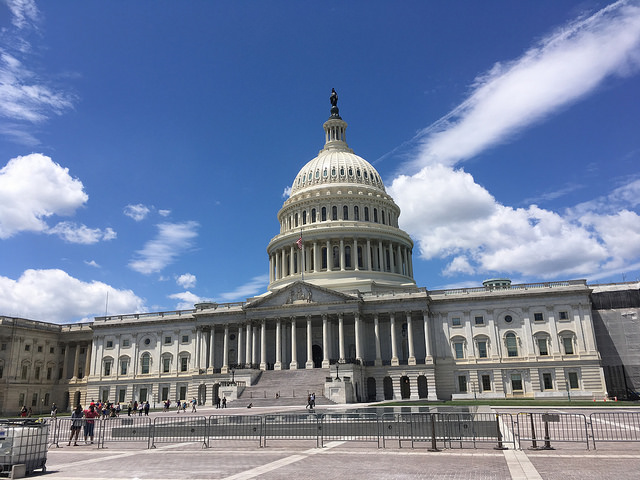
There is broad consensus among Democrats and Republicans that lowering drug prices should be a top priority of the 116th Congress.
One way to lower drug prices is to promote competition among manufacturers. However, any effort to promote competition must be done in a way that safeguards intellectual property rights, minimizes frivolous litigation, protects patients, and encourages innovation.
Unfortunately, the recently released CREATES Act (The Creating and Restoring Equal Access to Equivalent Samples) fails on all counts. The legislation, introduced in the House as H.R. 965 by Congressman David Cicilline (D-RI) and in the Senate as S. 340 by Senator Patrick Leahy (D-Vt.), undermines innovation and a system that ensures the safe development of medicines. Instead, the CREATES Act creates a system that promotes reckless litigation and grants generic manufacturers the right over an innovators’ creation under threat of lawsuit.
The CREATES Act is flawed and should be rejected by members of the House and Senate regardless of whether it is considered as a standalone bill or as part of a broader package of proposals.
CREATES Upends a Carefully Balanced, Working Regulatory System
The CREATES Act modifies the FDA’s Risk Evaluation and Mitigation Strategies (REMS), a regulatory structure that applies to roughly 40 highly advanced yet potentially dangerous drugs. REMS has been carefully enshrined in law to balance safety, innovation, and access to medicines.
The CREATES Act would modify this regulatory system by allowing generics to bypass FDA procedures that exist to ensure REMS medicines are safely developed. Under the proposal, a generic manufacturer is not required to include adequate safeguards for patients and researchers as a condition of authorization. This reform also limits the ability of the FDA to deny or modify an authorization request.
These changes restrict the safeguards within the REMS structure in a way that undermines the safe, efficient development of medicines.
CREATES Encourages Unnecessary Litigation
The main way that the CREATES Act modifies REMS is by creating a new litigation system that grants generic competitors seeking samples from an innovator the ability to launch litigation just 30 days after negotiation has begun.
This will create incentives to launch litigation rather than go through existing process of approval for generic product.
Under this proposal, bad actors in the industry would be empowered to launch frivolous litigation. In turn, this would be a handout to trial lawyers at the expense of innovators, consumers, and the healthcare system. The legislation’s legal protections are so vague that innovators may even be responsible for actions taken by a reckless generic competitor.
CREATES Undermines Intellectual Property Rights
In addition to opening the door to a wave of unnecessary lawsuits, the new litigation system threatens intellectual property rights of innovators. The system may force innovators to hand over their IP through the threat of litigation, a precedent that could result gives generics a right over an innovators IP and will result in more resources being devoted to fighting legal action and fewer resources to research and development.
Patent exclusivity for medicines has been carefully legislated to ensure that creativity, innovation, and medical growth are protected. However, exclusivity is limited to prevent against a monopoly and ensure that consumers have access to medicine at reasonable prices. The CREATES Act upends this important system.
CREATES Will Not Lower Costs
While the CREATES Act is described by supporters as an attempt to increase efficiency and lower costs, it may have the opposite effect. Rather than reducing the cost of medicines, this bill may create a more burdensome, litigious system that undermines innovation.
Costs associated with medical development are already significant. On average it costs $2.6 billion and more than a decade of research time for each new medicine that hits the market.
Lower health care costs will not be achieved through empowering reckless litigation or through changes to the regulatory process that fail to protect innovation or safety.
Serious proposals to reduce costs should focus on increasing competition in a way that encourages innovation, limits meritless litigation, and protects safety.

